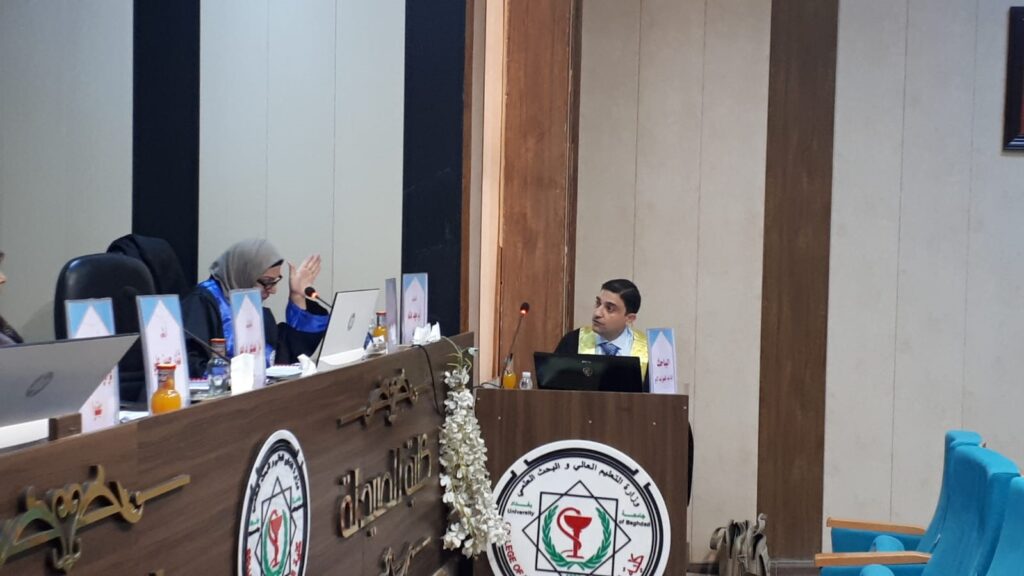The Faculty of Pharmacy discussed the Ph.D. thesis entitled “The Frequency of Some Tumor Necrosis Factor Gene Polymorphisms and their Association with the Severity and Susceptibility to Rheumatoid Arthritis in Iraqi Patients“ by Khalid Abdulhussein Abdulameer and his supervisor, Assist. Prof. Dr.Zainab Majid Hashim, in the Department of Clinical Laboratory Sciences. The thesis aims to measure the frequency of the genotypes and alleles of -1031 T/C, -238 G/A, -806 C/T, -857 C/T, -572 A/C, and -646 G/A single nucleotide polymorphisms among newly diagnosed Iraqi RA patients. Moreover, to investigate the effect of these single nucleotide polymorphisms on the disease activity (based on the Disease activity score in 28 joints) and susceptibility in addition to their influence on the inflammatory markers. Twenty control subjects (3 males and 17 females) and 63 newly diagnosed rheumatoid arthritis patients (8 males and 55 females) were enrolled in an observational case-control study conducted in Baghdad city at the outpatient clinic of the Rheumatology Unit of Baghdad Teaching Hospital and a private clinic. The patient group was divided into two groups based on their disease activity scores in 28 joints. Blood samples were drawn from all participants to measure the inflammatory markers and for performing DNA analysis. The Sanger sequencing method was performed to determine the single nucleotide polymorphisms in the promotor region of the tumor necrosis factor-alpha gene.The results proved that the TT genotype and the T allele of the 1031 T/C SNP had significantly higher frequencies in the controls compared to rheumatoid arthritis patients and in patients with mild-moderate disease activity compared to patients with severe disease activity. Conversely, the TC genotype and the C allele of -1031 T/C had a significantly higher frequency in patients compared to controls and in patients with mild-moderate disease activity compared to patients with severe disease activity. Additionally, the presence of the -1031 TT genotype was associated with a lower risk for rheumatoid arthritis. Conversely, the presence of the -1031 TC genotype was correlated with increased disease susceptibility. Furthermore, the -1031 TC genotype was associated with elevated values of the inflammatory markers.




